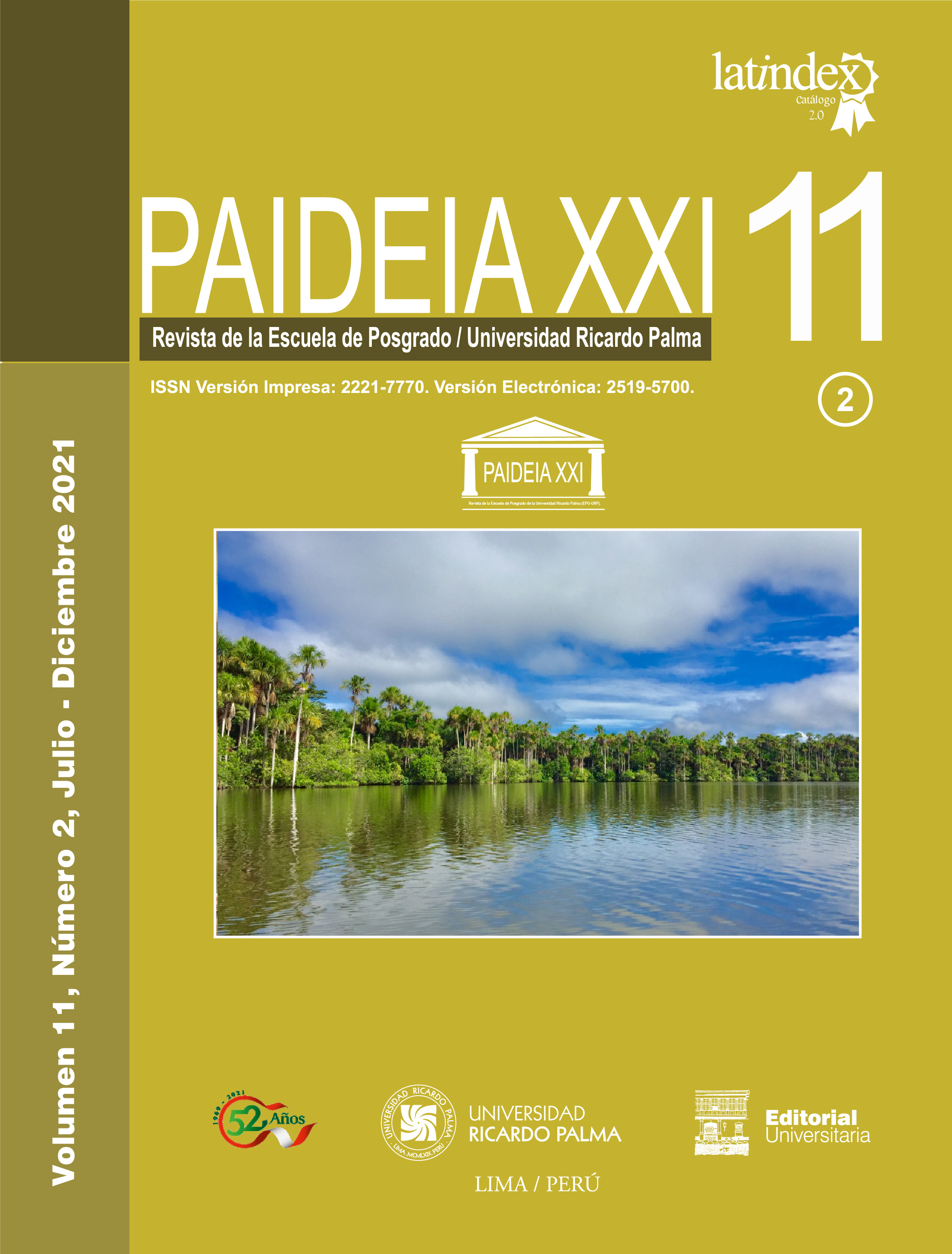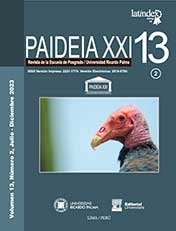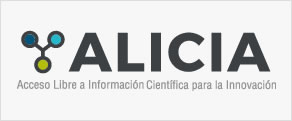DIGITAL TECHNOLOGICAL COMPETENCE THROUGH THE MOODLE PLATFORM IN COLLEGE EDUCATION DURING COVID 19
DOI:
https://doi.org/10.31381/paideia.v11i2.4261Abstract
The aim of the study was to evaluate digital technological competence through the Moodle platform in university teaching during COVID 19. The study was carried out between May and July 2021 with students with a master’s degree in health sciences and a doctorate in science, technology and the environment, where digital technological competences were recognized from the activity or resource (chat, questionnaire, forum and task) that were added from the visualization in the Moodle virtual teaching platform. Statistically signifi cant differences were found in the level of response for the master’s and doctoral programs; where there was no alignment of discrimination of means in both programs and in the case of applicants for a master’s degree in science, the level of response to information from an activity or resource was better. Chat and forum were the lowest frequency activities. It is concluded that the COVID-19 pandemic generates concern in education, since there are digital access gaps, and deficient use from the activities shown by the Moodle teaching platform. In addition, digital technological competence in university teaching for both postgraduate programs was valued as limited, since the low number of applicants who showed an immediate level of response, supports the idea that the digital divide from the answers of technological resources prevents integration, the development of social practices and that are related to formative learning.
Keywords: COVID 19 – digital competence – teaching – technology – university












